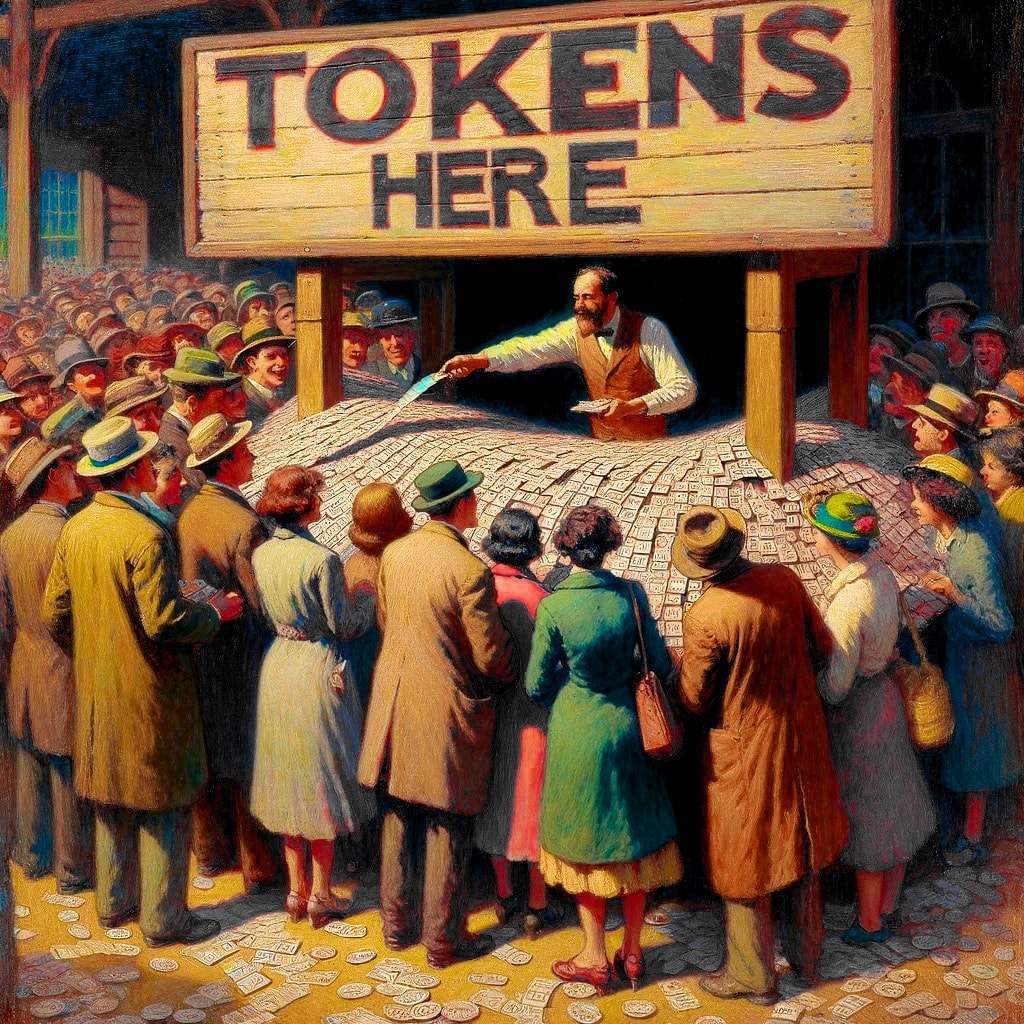Welcome, and thank you for being part of the MyZucoins community! Let’s get into an interesting piece of crypto, finance, or tech news to stay ahead.
Big thank you to MyZucoins subscriber Owen for the great article suggestion used in today’s newsletter. As always, if you come across a great news tip, reply back to this newsletter and drop a link! 🙂

Investment Giant “Franklin Templeton” On Bitcoin ETFs And Harnessing Tokens To Democratize Markets
Franklin Templeton, an investment giant managing over $1.3 trillion, is delving deep into the world of blockchain technology.
In 2021, it became the first U.S. registered mutual fund to utilize a public blockchain for recording and processing transactions.
That same year, it also launched crypto-focused separately managed accounts (SMAs).
More recently, the company has filed an application for a Bitcoin ETF, joining the 12 or so similar applications, signaling its interest in providing clients with access to the booming digital asset market.
CEO Jenny Johnson is excited about the potential of blockchain technology, particularly its capacity to democratize access to private markets by reducing transaction costs.
This could unlock nontraditional, non-correlated asset classes for their clients and make existing products more efficient, such as ETFs that could be priced in real-time via smart contracts on blockchains.
Franklin Templeton has already tokenized a money-market fund and built a shareholder recordkeeping system on blockchain, demonstrating its commitment to this technology.
When asked about the approval of the first Bitcoin spot ETF, Johnson admitted that it’s in the hands of regulators who prioritize consumer protection.
She does, however, see a demand for such a product, especially for those interested in investing in Bitcoin and looking for a convenient method.
Johnson herself has invested in cryptocurrencies like Bitcoin and Ethereum, indicating a personal interest in the space.
With regard to future plans, Johnson is open to launching more blockchain and crypto-related products, based on client demand.
The tokenized U.S. money-market fund has seen inflows of over $270 million, indicating a positive response to such innovative approaches.
Johnson also sees potential in NFTs, although she advises caution, likening some to art where market prices can fluctuate based on personal preferences. Read more here.
State of crypto tokenization: “Adoption is equivalent to the internet in 2000”.
Japan to let startups sell digital tokens to venture capital funds.
The future of assets is crypto tokenization.
Huge: US Federal Reserve Bank releases paper on real-world asset tokenization benefits.
Tokenization 101: The future of ownership? More institutions join.
How Can Splitchain Be Used For Digital Assets?
Franklin Templeton’s forward-thinking approach to blockchain, as discussed by CEO Jenny Johnson, reveals the immense potential of blockchain technology in revolutionizing the digital asset world.
This vision aligns closely with the capabilities and strategic direction of Zucoin and its Splitchain network.
Johnson’s emphasis on blockchain’s role in democratizing markets and reducing transactional friction resonates with Zucoin’s fundamental mission.
This is crucial in broadening participation and lowering the bar to access all kinds of new digital assets that can be represented on Splitchain via tokenization.
It’s especially true in markets where Splitchain could make many complex processes much simpler.
Splitchain’s architecture can easily be bridged and connected to applications such as tokenized asset funds, allowing for the creation and management of tokenized assets with ease and improved safety over traditionally centralized databases and blockchains.
Many traditional blockchain solutions rely on consensus to prove what is trusted and not, unlike Splitchain, which operates on a truth-based model.
This is an important and deeply-rooted differentiation point, where so long as a single Splitchain caching node is telling the cryptographically-verifiable truth, and it can be found on the network, the majority consensus opinion is ignored.
It’s a very unique approach to what’s out there.
Splitchain does this through mechanisms that’ll be revealed once node scaling processes are fully standardized, so make sure you’ve subscribed to this newsletter to get the news as soon as it becomes available.
This behavior could enable a wide range of digital products to be built on top of Splitchain by third parties, similar to Franklin Templeton’s tokenized money-market fund.
Splitchain could provide a stable and reliable foundation for digital asset-based ETFs.
Its robust two-factor authentication (2FA) transaction network could facilitate real-time pricing with its fast 90-second settlement times, enhancing transparency and efficiency in ETF transactions.
This is far quicker than most current international settlement times, especially for asset transactions, which can often take hours, days or even weeks to fully complete.
Zucoin and Splitchain’s ability to support non-traditional, non-correlated asset classes also ties in with Franklin Templeton’s interest in unlocking new investment opportunities.
These third-party platforms could utilize Splitchain to offer innovative solutions for creating, managing, and trading such assets amongst themselves, further diversifying investment portfolios and mitigating risks.
The focus on NFTs and their potential in various sectors beyond the art world is another area where Splitchain could make a significant impact.
As regular readers of this newsletter will know, Splitchain’s coming capabilities will enable NFTs to be created as a subset of a wider range of tools, under the umbrella term of “smart assets.”
Splitchain will initially provide these building blocks as software developer tools which third parties can use to rapidly, easily and efficiently construct these capabilities, simplifying the processes for many businesses in these industries.
If you liked this newsletter, please forward it to someone who might like it too.
You can also donate here or even buy some Zucoins. Every little bit helps us improve.
What did you think of this newsletter? Reply to send us feedback on what you liked or want to see featured more. There’s more coming, so stay tuned.
—
All the best,
—Rob
MyZucoins
Disclaimer: Of course, this is not advice, financial or otherwise. It’s also important to consider the risks and challenges associated with any potential benefits.